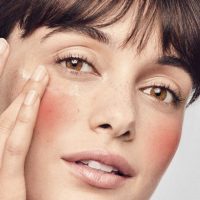What is Rosacea?
Thank you for reading this post, don't forget to subscribe!Rosacea is a common, chronic, recurrent skin condition predominantly seen in adults with fair skin. It manifests as facial redness, flushing, and visible tiny blood vessels.
Am I a Good Candidate?
You are a good candidate for rosacea, if:
- You have visible symptoms such as facial redness, flushing, and visible blood vessels.
- You experience red pimples or pustules on the central face.
- Your skin type is primarily fair, although those with other skin types may also consider treatment.
- You are sensitive to common rosacea triggers like sun, heat, alcohol, and spicy foods.
- You have experienced flare-ups due to environmental or dietary factors.
- Your eyes are affected by dryness, itching, redness, or the development of styes.
- You have used oral antibiotics and topical creams with limited success in the past.
- Your skin is highly sensitive to cosmetic products, requiring specialized skincare.
Benefits:
- Treatments help significantly reduce facial redness and flushing.
- Reduces the appearance of red pimples and pustules, resulting in clearer skin.
- Treatments can enhance the overall texture and smoothness of the skin.
- Visible blood vessels are lessened, leading to a more even skin tone.
- Eye-related symptoms like dryness, itching, and redness are reduced.
- Treatments like laser therapy offer minimal to no downtime, allowing for a quick return to daily activities.
- Combining treatments like laser therapy and oral antibiotics can provide a comprehensive solution for severe cases.
- Many treatments are non-invasive, reducing the risk and discomfort associated with more invasive procedures.
- Treatments can be tailored to individual skin types and severity of rosacea.
- Regular maintenance and proper skincare can help prevent future flare-ups.
More Details:
Rosacea is a common, chronic recurrent skin condition seen mostly in adults with fair skin. Patients present with facial redness, flushing and visible tiny blood vessels. Common exacerbating factors include sun, heat such as hot showers, alcohol, and spicy foods. Some even get red pimples concentrated on the center of the face, which somewhat look like acne. Rosacea affects the eye, leading to itching, dryness, redness, and the development of styes.
Traditional rosacea treatment focuses on the use of oral antibiotics and creams. Optimal treatment in our experience is using laser therapy, in combination with oral antibiotics in severe cases. The Nd:YAG laser is especially effective in reducing the redness, while the heat it generates reduces the bacteria and parasites that make rosacea worse. There is no downtime. Maintenance sessions may be needed. Meanwhile patients should avoid any precipitating factors including heat, alcohol and spicy foods, wear a sunscreen daily and watch out for the cosmetic products they use as their skin is very sensitive. Use of a daily moisturizer is helpful in repairing the skin’s barrier function. To diminish relapses, moisturizers and rosacea-targeting creams are recommended as part of a daily skin care regimen.
We also used Botox in certain cases to treat Rosacea with very good results.
